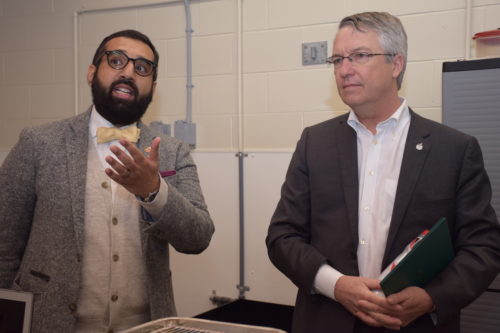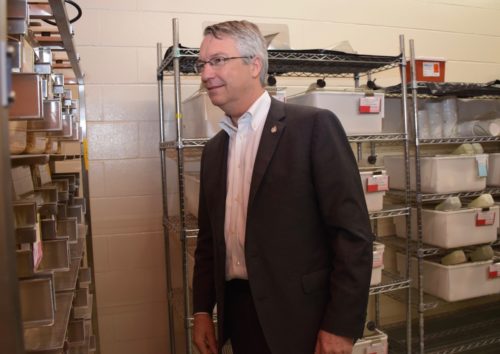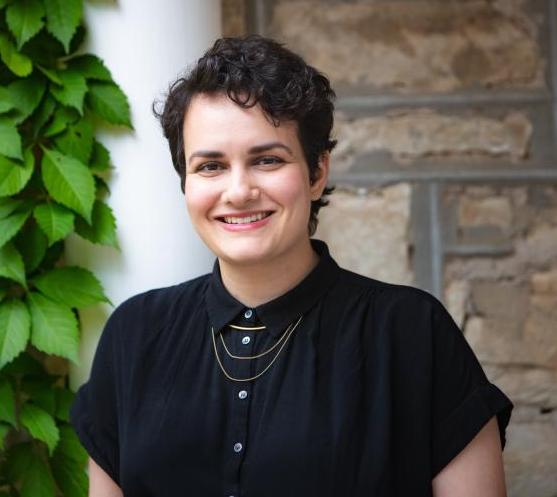
The federal government will invest nearly $430,000 in four University of Guelph research projects, ranging from addiction and mental health, to disease resistance to cancer therapies.
The Canada Foundation for Innovation will fund these projects through the John R. Evans Leaders Fund (JELF), created to help universities attract and retain leading faculty and researchers.
In total, CFI will invest more than $39 million from the JELF to support 186 research projects at 43 universities across Canada. The announcement was made earlier this week by Kirsty Duncan, federal minister of state for science and technology.
“Our leading researchers will use this critical funding to advance research that places them at the forefront of their fields,” said Malcolm Campbell, vice-president (research).
“Their novel work allows the University of Guelph to continue to be a leader in the creation of knowledge that improves life and builds on our reputation for quality and innovation.”

Lloyd Longfield, MP for Guelph, added: “The government of Canada’s ongoing commitment to science continues to highlight the great work being done by scientists and their teams at the University of Guelph. Whether it is understanding the opportunities the universe brings, or the workings of the mind, Guelph is improving life by the work being done right here in the Royal City.”
This important work, Longfield said, attracts the brightest minds from around the world to make Guelph and Canada their home.
“Today’s announcement reinforces the good we can do together,” he said.
On Friday, Longfield toured the research lab of Prof. Jibran Khokhar, one of the four U of G scientists who will benefit from this latest round of federal support.
Khokhar, a professor in the Department of Biomedical Sciences, is establishing a neuroscience laboratory to study addiction and mental illness. He will use his $97,087 grant for research infrastructure to help understand mechanisms underlying substance use and serious mental illness.

Substance use disorders occur commonly in patients with schizophrenia, but few treatment options are available, partly due to a lack of understanding of substance use, Khokhar said. As well, the role of adolescent exposure to drugs and the risk of future development of these disorders are unknown.
Khokhar plans to explore the long-term and psychiatric disease-related consequences of adolescent drug use. He aims to inform the development of targeted medications and influence drug policies including cannabis involving access or age restrictions.
Molecular and cellular biology (MCB) professor Rebecca Shapiro will use her $71,819 JELF award to study biological mechanisms in microbial virulence and resistance to antimicrobial agents. Focusing on Candida albicans, a common cause of fungal infections, and C. auris, an emerging pathogen and critical public health threat, she will explore how the fungus tolerates drug treatment and causes disease.

MCB professor Jasmin Lalonde received $72,245 for a multidisciplinary neuroscience laboratory. By studying neuronal development and plasticity, he hopes to learn about the pathophysiology of brain impairments and identify potential treatment targets.
The largest grant went to physics professor Dennis Muecher, who received $186,000 for specialized equipment for use at TRIUMF, the national laboratory for particle and nuclear physics in Vancouver. Muecher will study how elements on Earth heavier than iron were formed to help predict how exotic nuclear matter, like neutron stars, participate in creation of heavy elements. His work may also apply in new, targeted cancer therapies.